C++调用Python脚本中的函数
1.环境配置
安装完python后,把python的include和lib拷贝到自己的工程目录下
然后在工程中包括进去
2.例子
先写一个python的测试脚本,如下
这个脚本里面定义了两个函数Hello()和_add()。我的脚本的文件名叫mytest.py
C++代码:
#include "stdafx.h" #include <stdlib.h> #include <iostream> #include "include\Python.h" using namespace std; int _tmain(int argc, _TCHAR* argv[]) { //初始化Python环境 Py_Initialize(); PyRun_SimpleString("import sys"); //添加Insert模块路径 //PyRun_SimpleString(chdir_cmd.c_str()); PyRun_SimpleString("sys.path.append('./')"); //导入模块 PyObject* pModule = PyImport_ImportModule("mytest"); if (!pModule) { cout << "Python get module failed." << endl; return 0; } cout << "Python get module succeed." << endl; PyObject * pFunc = NULL; pFunc = PyObject_GetAttrString(pModule, "Hello"); PyEval_CallObject(pFunc, NULL); //获取Insert模块内_add函数 PyObject* pv = PyObject_GetAttrString(pModule, "_add"); if (!pv || !PyCallable_Check(pv)) { cout << "Can't find funftion (_add)" << endl; return 0; } cout << "Get function (_add) succeed." << endl; //初始化要传入的参数,args配置成传入两个参数的模式 PyObject* args = PyTuple_New(2); //将Long型数据转换成Python可接收的类型 PyObject* arg1 = PyLong_FromLong(4); PyObject* arg2 = PyLong_FromLong(3); //将arg1配置为arg带入的第一个参数 PyTuple_SetItem(args, 0, arg1); //将arg1配置为arg带入的第二个参数 PyTuple_SetItem(args, 1, arg2); //传入参数调用函数,并获取返回值 PyObject* pRet = PyObject_CallObject(pv, args); if (pRet) { //将返回值转换成long型 long result = PyLong_AsLong(pRet); cout << "result:" << result << endl ; } Py_Finalize(); system("pause"); return 0; }
注意脚本放的位置,确保C++代码可以引用它。
运行结果:
3.python代码处理
在发布软件的时候,通常我们都不希望代码可以直接被别人看到。
以上的Debug目录中的exe要想能够单独运行,必须把python脚本拷过去。为了不让别人能直接看到我的代码,我拷过去的是生成的.pyc文件
拷过去之后修改文件名为:
实现了一个简单的python代码的加密。
不过据说可以反编译,但是对我来说已经够了。



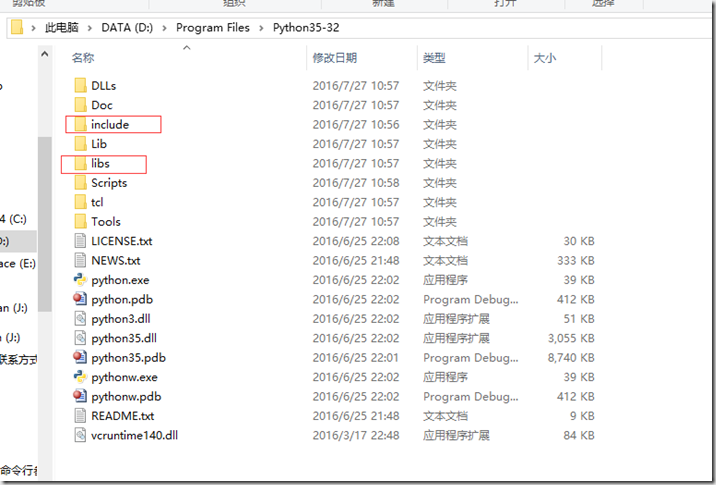
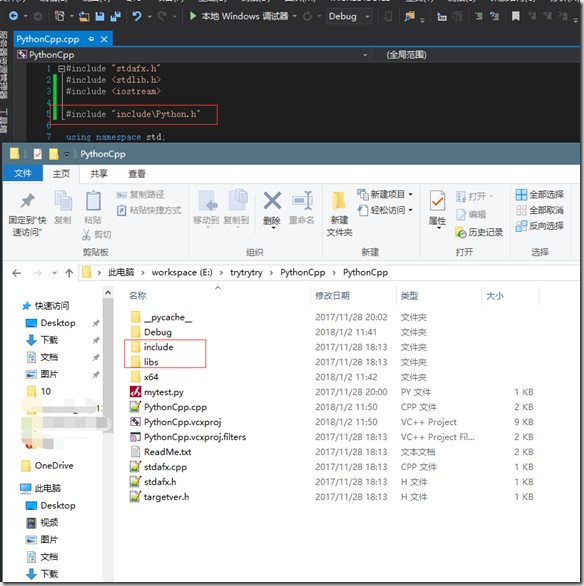
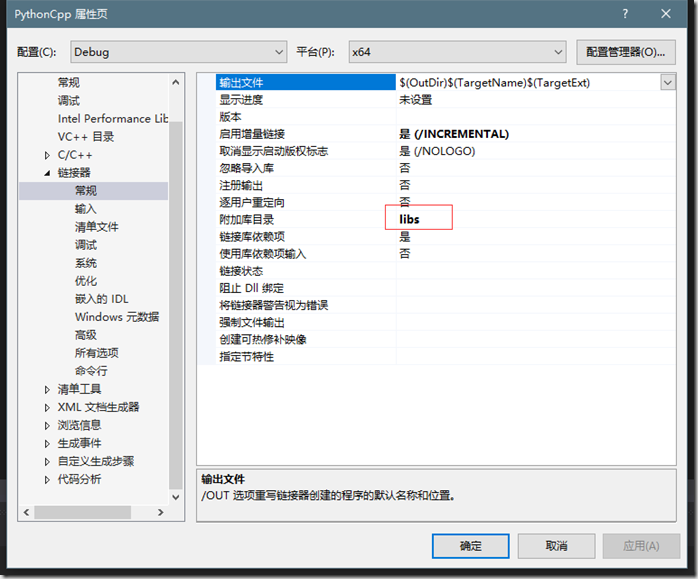
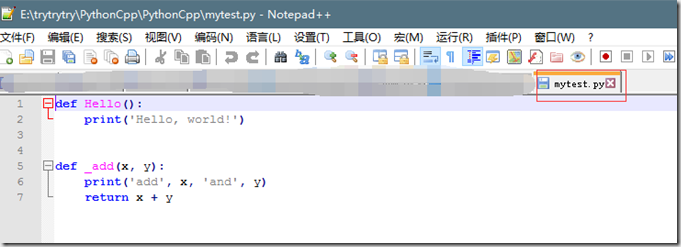
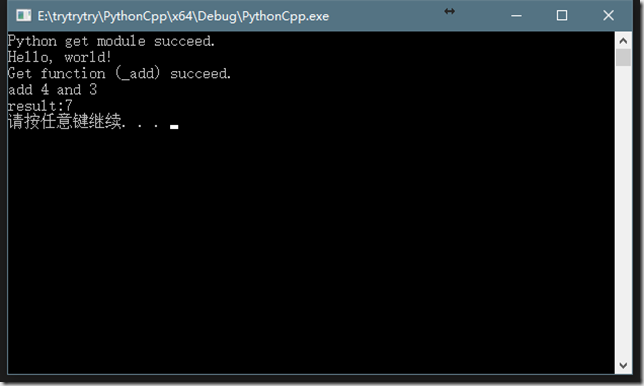

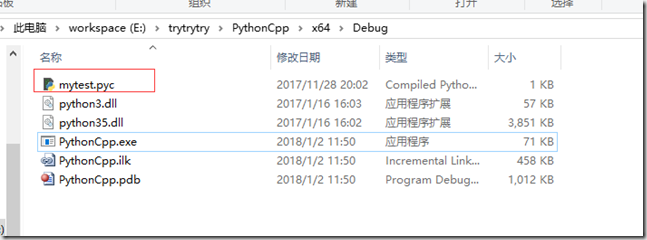

 浙公网安备 33010602011771号
浙公网安备 33010602011771号